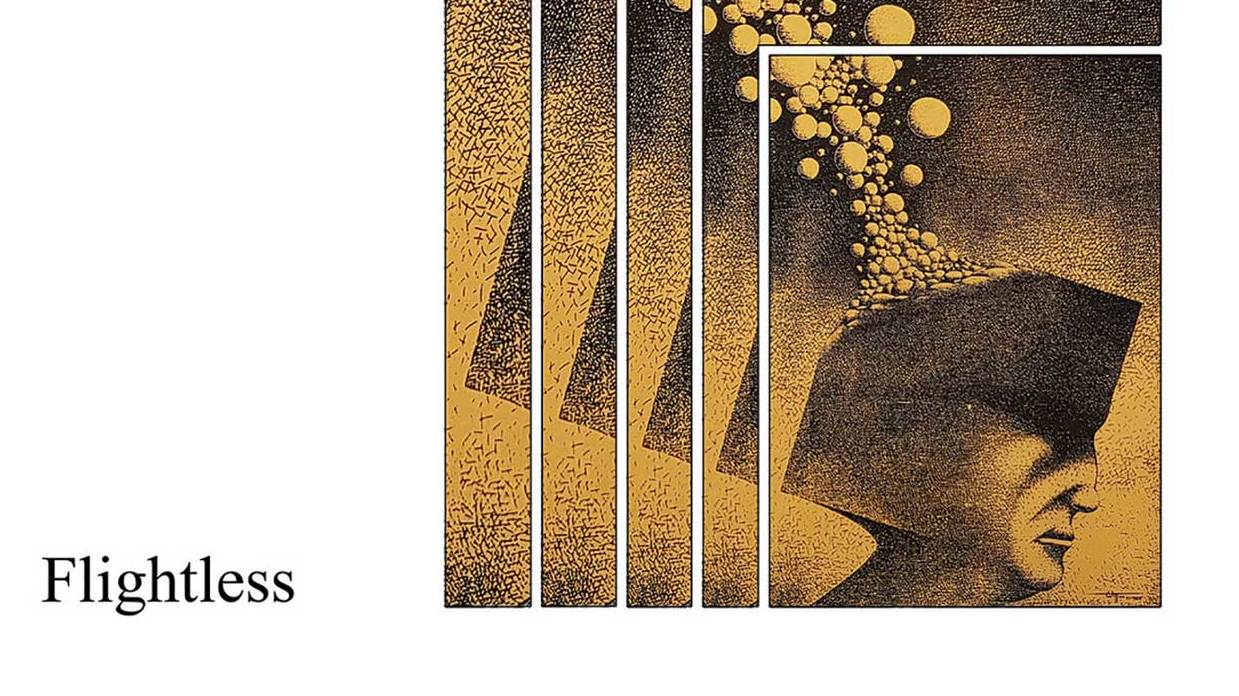A long, long time ago, in a land governed by an Iron Lady who was suspicious of Europe and sure of Britain’s greatness, Rog Patterson quietly released his debut album. It was 1989 and with the Cold War ending and the Berlin Wall crumbling, his folk-prog tales of injustice and rage seemed out of time.
Yet there’s a moment in this reissued debut album where its striking mixture of folk, fury and ambition feels like it was decades ahead of the game. As Patterson sings, ‘It couldn’t happen here,’ it becomes clear that in this post‑Brexit, Trumpified world of alt‑right nonsense, he’s caught something of the zeitgeist.
His song calls to mind that old 1935 novel by Sinclair Lewis that imagines a dictator in America. It’s a startling moment that jolts us back into prog’s tradition of protest that flows through Roger Waters, Ian Anderson and Roy Harper. Above all, nearly 30 years on from its original release, Flightless channels Harper’s classic spirit, by turns philosophical and furious.
However, if Harper’s acoustic punk-prog is never far from the surface, Patterson brings his own sharp intelligence to bear. The majestic Ergo Sum and the title track summarise the album’s main points: Patterson’s Ian Anderson-influenced voice, lyrics about England’s lost generosity towards the weak and the poor, and an acoustic guitar-led sound that shifts between fury and beauty.
When he’s in a quieter mode, Patterson evokes the mystic chords of Anthony Phillips in Trespass mood, but it’s the barely concealed protest running throughout Flightless that really earns the album its stripes.
After several decades spent working as the tour manager and sound engineer for the likes of Rage Against The Machine, Skunk Anansie and Faith No More, Patterson has come out of the shadows, and we eagerly await a long-rumoured new album. In the meantime, Flightless’s time may finally have come, with Patterson never more on point.
